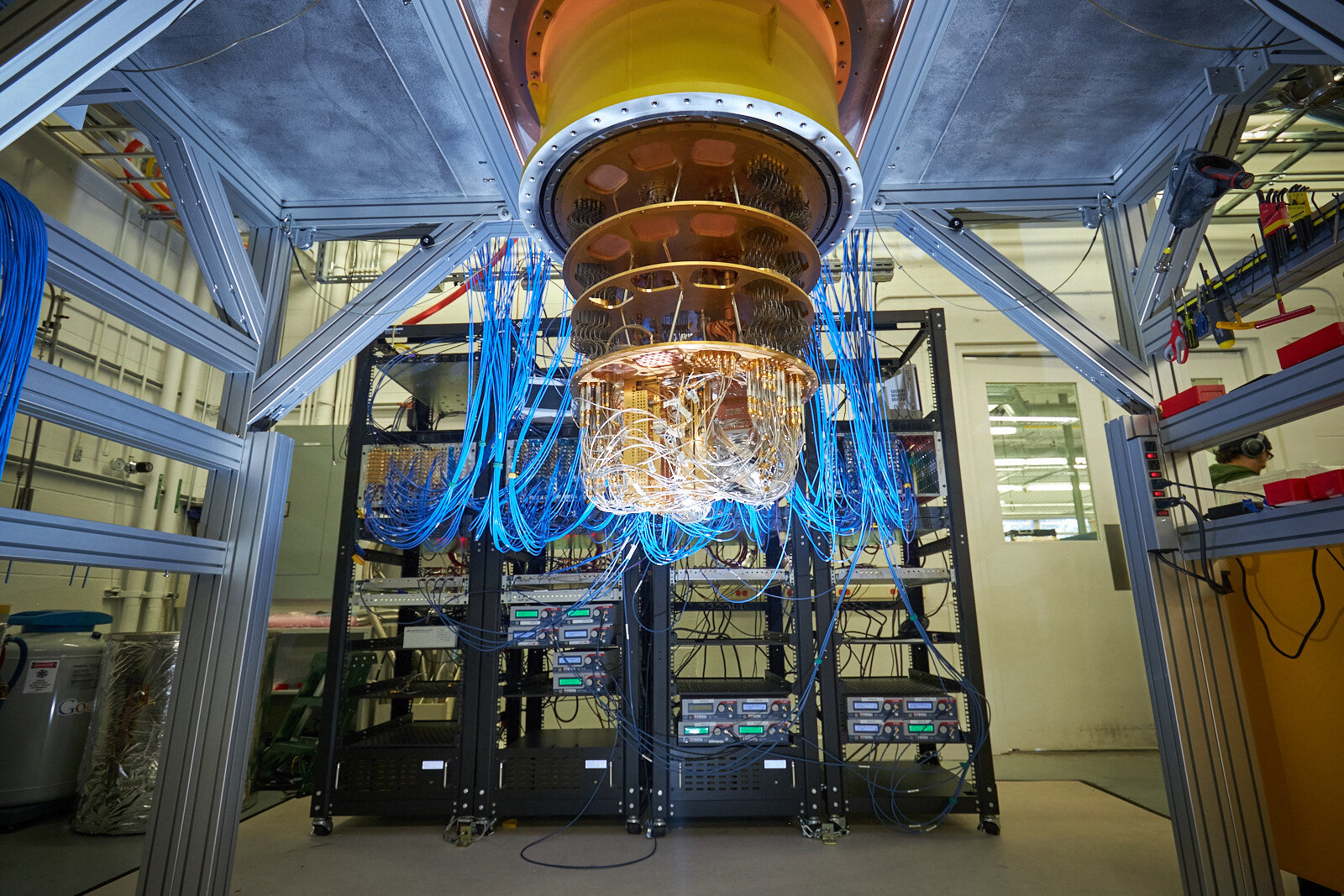Recently, Artificial Intelligence (AI) and Machine Learning (ML) have been plastered all over the headlines of every major media outlet since the latest release of GPT-4 by OpenAI. This is no surprise, as AI & ML pose solutions to a wide variety of applications such as Autonomous Vehicles, Advertising, Robotics, Data Security, Finance, Gaming, Agriculture, Healthcare, and many more. While all of these applications pose extreme potential for AI and ML, there are a few limitations to the technology, one of them being the tremendous amount of computational power it takes to process these massive amounts of data. Classical computers are inherently limited in their ability to efficiently process data due to the nature of how they are designed, but quantum computing offers an alternative to how we can approach these issues.
Quantum computers are able to process data approximately one million times faster than a supercomputer can. The reason for this is their use of quantum bits (qubits) rather than bits. Classical computers use bits which hold binary states and can be represented by the numbers 0 and 1, in which the corresponding states are either off or on. In contrast, qubits can exist as both 0 and 1 concurrently or as a combination of both states, behaving like waves. This trait is called superposition and allows quantum computers to process many outcomes simultaneously. Try not to get too caught up in how everything works on a physical level as this is an extremely advanced concept, but we will try to focus more on the applications of this technology.
Quantum computers become advantageous when trying to compute more accurate models and simulations using enormous amounts of data to predict the outcome of a situation. Some of the most common examples are financial modeling, drug testing, climate modeling, cybersecurity, traffic/shipping optimization, and any other unique field requiring the processing of large datasets.
As of right now, key players in the quantum computing space are large companies such as Google, IBM, and IonQ, which are focusing on building physical quantum computers while companies like Microsoft, D-Wave, and QCI are building out the cloud and software services for those computers. Since 2019, quantum computing has seen an increase in venture capital funding jump from about $225M in 2019 to $680M in 2020, $1.35B in 2021, and $1.8B in 2022. So far, 2023 has seen around $420M in funding. Some of the top startups in this space include: IonQ, who in October of 2021 became the first quantum computing startup to go public; Rigetti, ArQit, and D-Wave, who went all public in 2021 and 2022; and companies like SandboxAQ, PsiQuantum, BBM Technologies, and Qantinuum (formerly a split of Cambridge Quantum and Honeywell Quantum), who are not public but have received significant funding so far. Since 2019, there have been about 300 companies that have received venture capital funding and 27 that have exited in that time (M&A being most common).
Although funding for quantum computers has significantly increased over the years, they are still in an extremely early stage. McKinsey projects that it will take at least another ten years before quantum computing reaches mass adoption, and it could be as long as 2035 until the right tools are in place to tackle practical business issues.
Despite all of the hype, quantum computing’s impact remains largely theoretical. Since the tools needed for practical use have not been built out yet, these applications are not yet being capitalized on. It is also important to note that quantum computers are highly sensitive to outside interference, so they require strictly controlled environments for operation. Therefore, they are very impractical for the everyday phone and computer user. Quantum computers will never replace classical computers, but they can work to solve different large scale problems. Only time will tell how impactful this revolutionary technology can be in our future.
Sources:
Picture: https://phys.org/news/2020-08-google-largest-chemical-simulation-quantum.html
https://builtin.com/hardware/quantum-computing-applications

